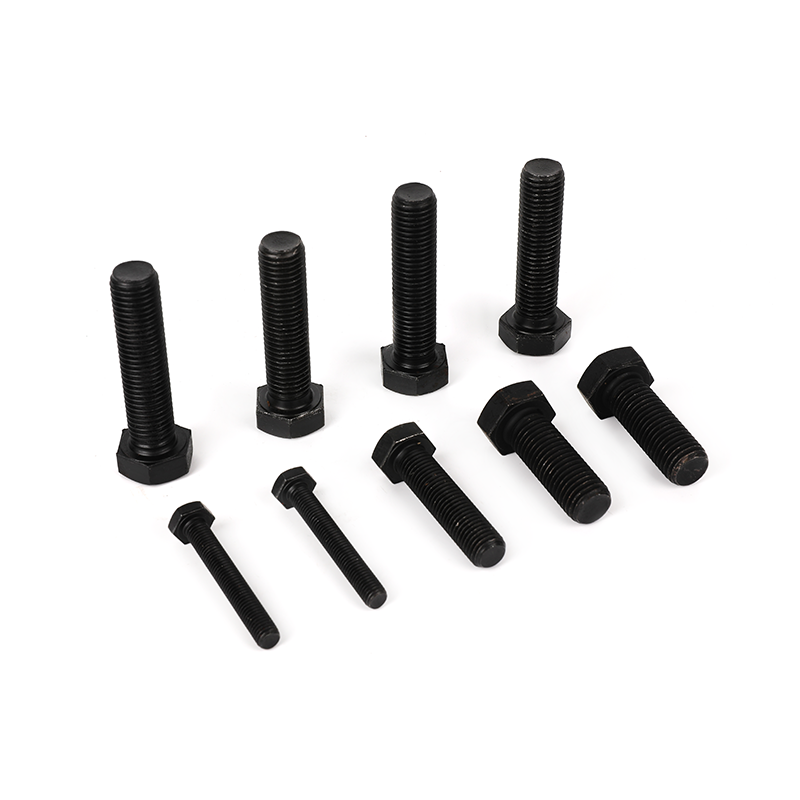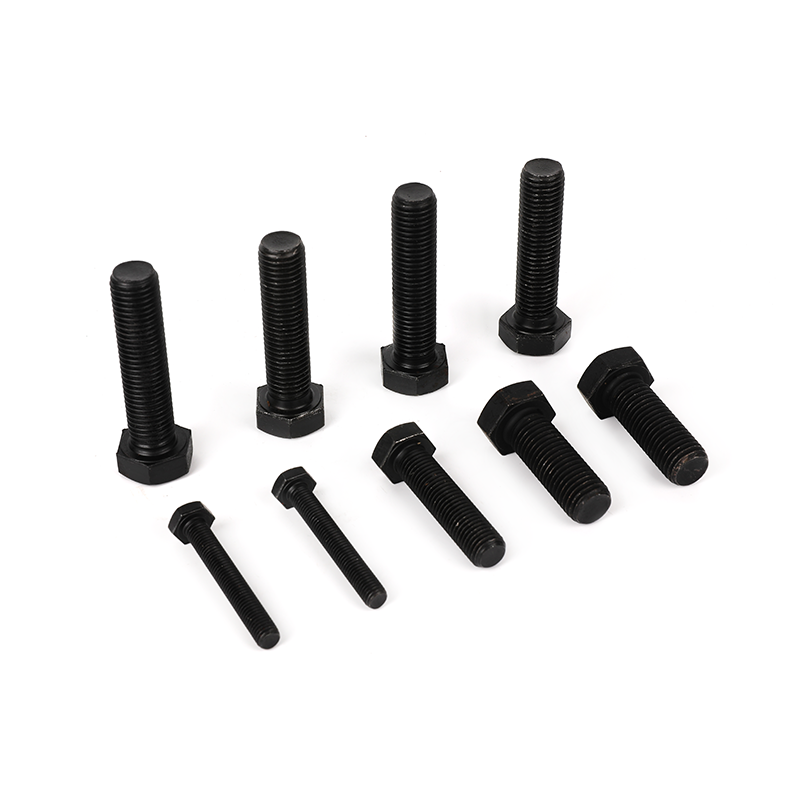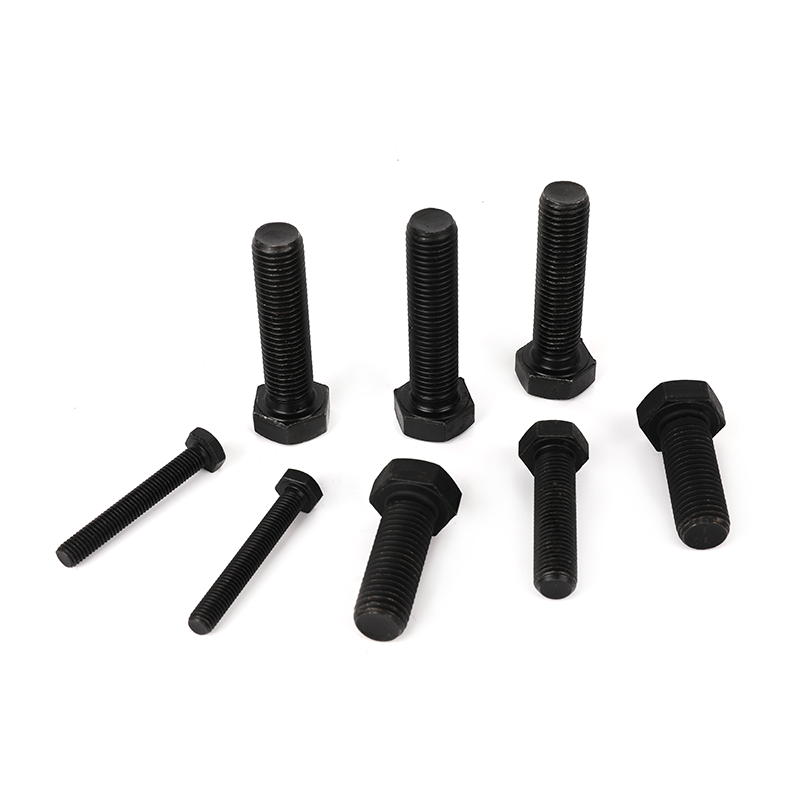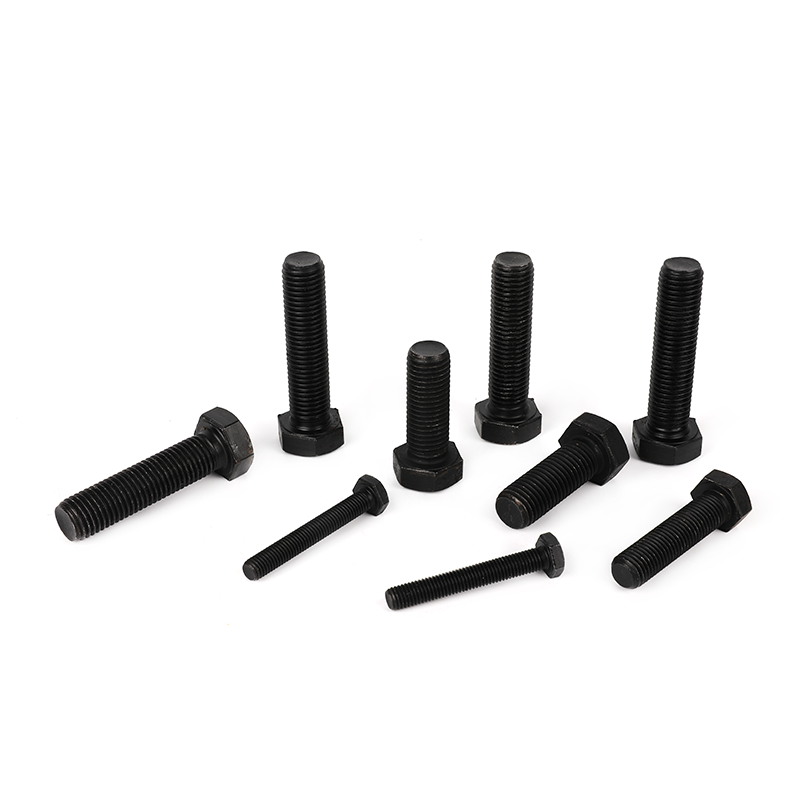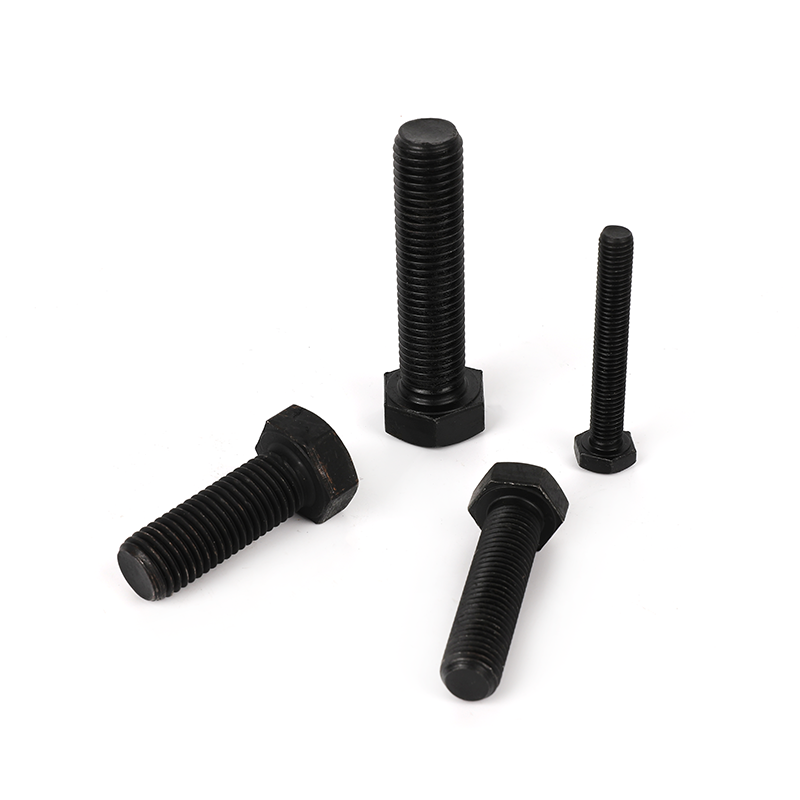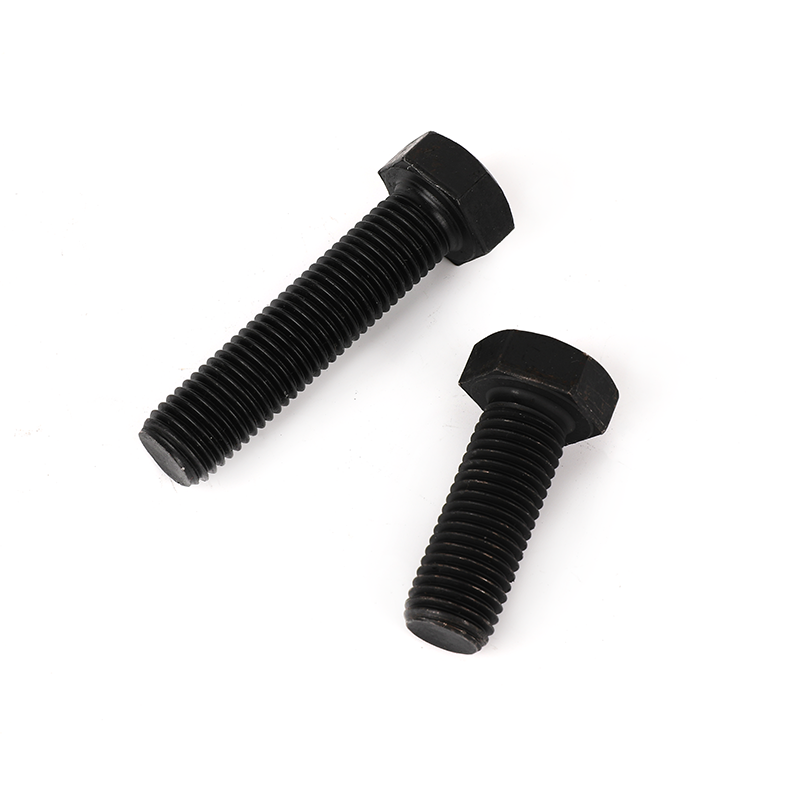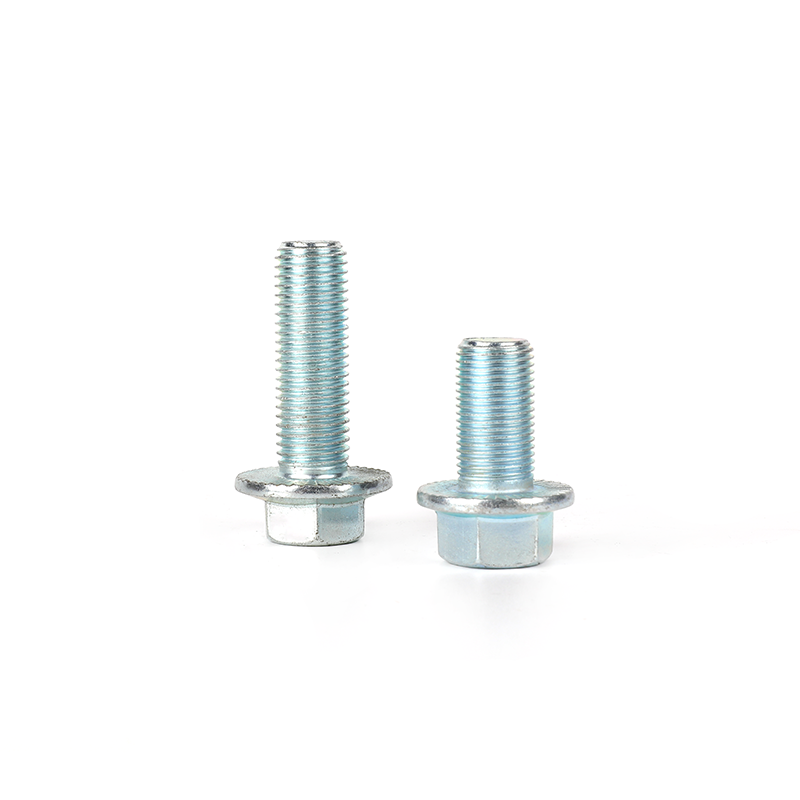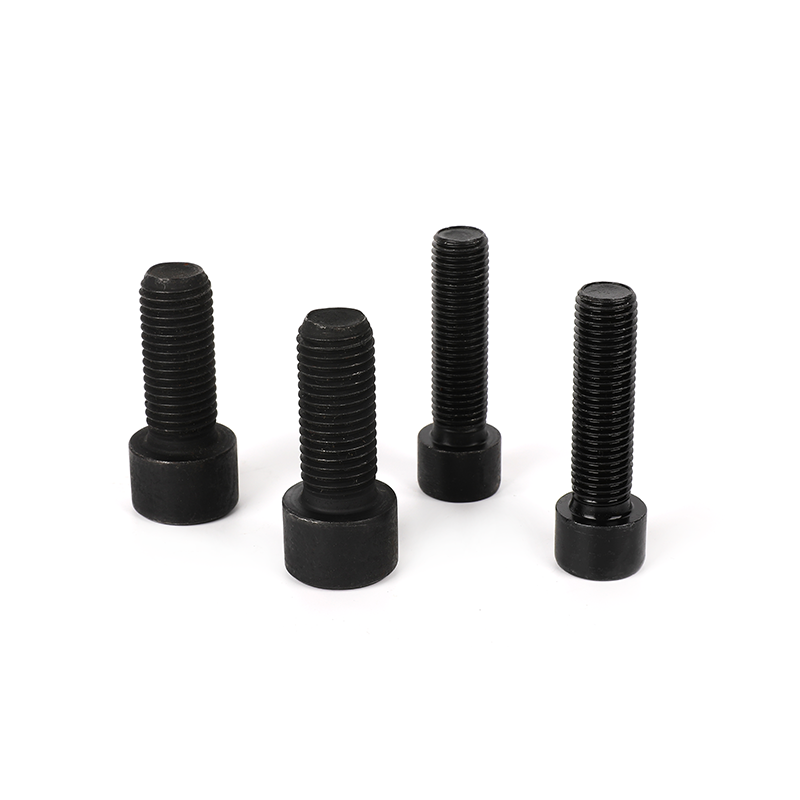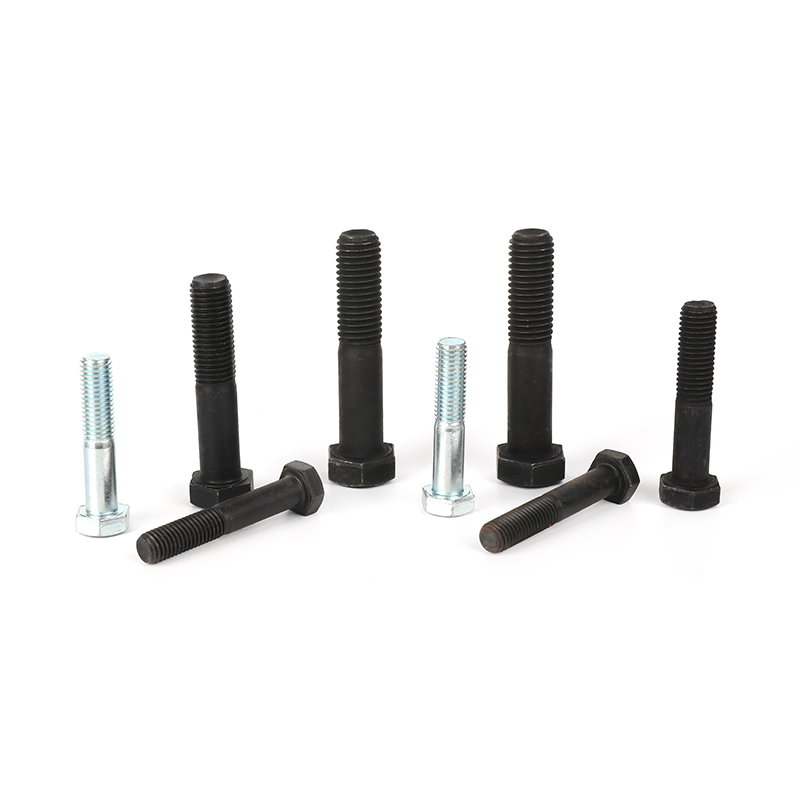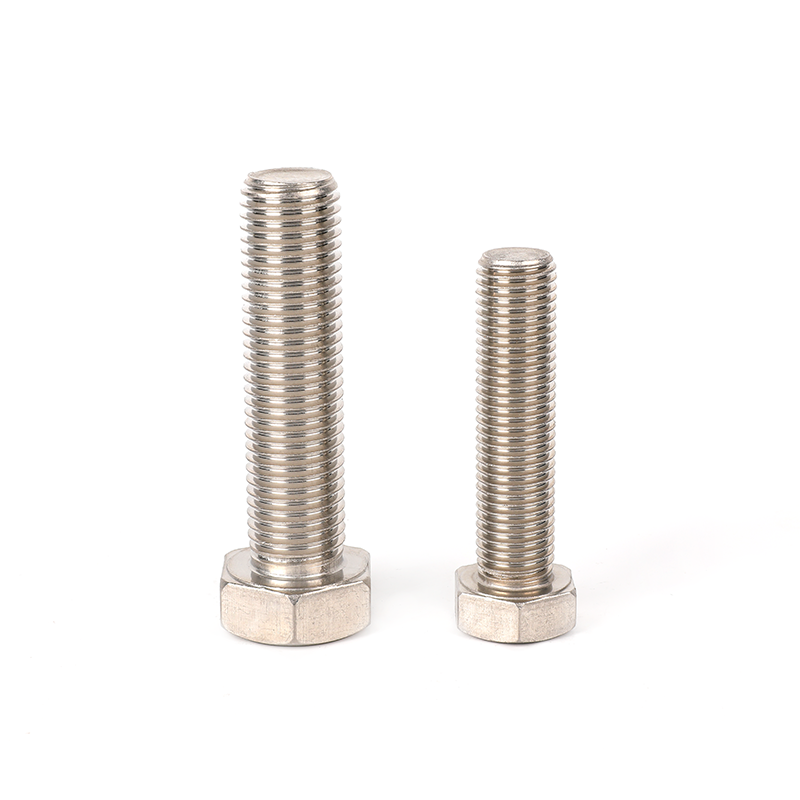How stable and reliable are Grade 8.8 black oxide full-thread hexagon bolts?
Material Strength (Grade 8.8):Grade 8.8 indicates a specific level of strength for these bolts. The numeric grading system is based on the material's tensile strength and yield strength. In the case of Grade 8.8, it signifies a minimum tensile strength of 800 MPa and a minimum yield strength of 640 MPa. This high-strength classification makes these bolts suitable for demanding applications where strength and reliability are critical.
Full-Thread Design:The full-thread design of these bolts contributes to their stability and reliability. Full-thread bolts provide consistent clamping force along the entire length of the threaded portion, improving the load distribution and reducing the risk of loosening over time.
Black Oxide Coating:The black oxide coating serves multiple purposes, including enhancing corrosion resistance and providing a smooth surface finish. While primarily chosen for its aesthetic appeal, the coating can also contribute to the bolts' reliability by protecting against certain corrosive environments.
Corrosion Resistance:The black oxide coating, in combination with the material composition, offers a level of corrosion resistance. This is particularly important for applications where exposure to moisture, chemicals, or atmospheric conditions could potentially compromise the integrity of the bolts.
Thread Pitch and Size Options:The availability of various thread pitch and size options allows for customization based on specific application requirements. Properly selected thread specifications contribute to the stability and reliability of the bolts in diverse settings.
Quality Control Measures:Stringent quality control measures during the manufacturing process are crucial for ensuring the stability and reliability of Grade 8.8 black oxide full-thread hexagon bolts. These measures include dimensional checks, material testing, and adherence to specified standards.
Application-Specific Considerations:The stability and reliability of these bolts can vary based on the specific application and environmental conditions. Factors such as temperature extremes, vibration, and dynamic loads should be taken into account when assessing the suitability of these bolts for a particular use case.
Regular Maintenance:Implementing a regular maintenance schedule to inspect the condition of the bolts is advisable. Periodic checks can help identify any signs of wear, corrosion, or potential issues that could affect stability and reliability over time.
Compatibility with Substrates:Ensuring compatibility with the materials being fastened is crucial for long-term stability. Consideration should be given to potential galvanic corrosion when bolts are used with dissimilar materials.

